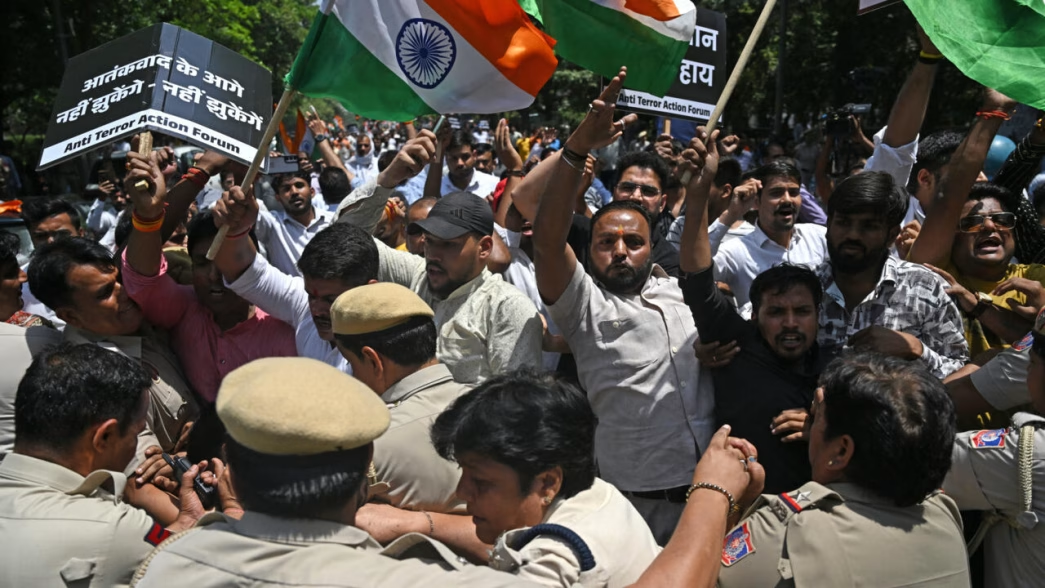As of May 7, 2025, tensions between India and Pakistan have escalated significantly following a series of military actions and retaliations, marking one of the most severe confrontations between the two nuclear-armed neighbors in recent years.
The Catalyst: Pahalgam Attack
The current crisis was triggered by a deadly attack on April 22 in Pahalgam, located in Indian-administered Kashmir, where 26 individuals, primarily Indian nationals, were killed. India attributed the attack to militant groups operating from Pakistan, specifically Lashkar-e-Taiba and Jaish-e-Mohammed, though Pakistan denied any involvement.
Operation Sindoor: India’s Response
In retaliation, on May 6, India launched “Operation Sindoor,” conducting airstrikes on nine targets across Pakistan and Pakistan-administered Kashmir. The Indian government described these strikes as “focused, measured, and non-escalatory,” aiming to dismantle terrorist infrastructure without targeting Pakistani military facilities.
However, Pakistan reported that the strikes resulted in civilian casualties, including the deaths of at least eight people and injuries to 35 others. Structures such as mosques and residential areas were reportedly hit, leading to widespread condemnation from the Pakistani government, which labeled the attacks as an “act of war.”
Pakistan’s Retaliation
In response to Operation Sindoor, Pakistan claimed to have shot down five Indian aircraft, including Rafale jets, and targeted Indian military installations across the Line of Control (LoC). India has denied these claims. The exchange has intensified cross-border shelling, resulting in further civilian casualties and displacement in border regions.
Diplomatic Fallout and International Reactions
The escalation has led to a breakdown in diplomatic relations, with both countries expelling diplomats, suspending visa services, and closing borders. India has also announced its withdrawal from the Indus Waters Treaty, a long-standing agreement governing water sharing between the two nations.
International bodies, including the United Nations, have expressed deep concern over the situation. UN Secretary-General António Guterres urged both nations to exercise restraint and engage in dialogue to prevent further escalation. Countries such as the United States, China, and Russia have also called for de-escalation and offered to mediate discussions.
Humanitarian Impact
The conflict has had severe humanitarian consequences. In Pakistan’s Punjab province, an emergency has been declared, and international flights have been suspended. In India, mock drills and heightened security measures have been implemented in border areas. Residents in these regions face displacement, loss of livelihoods, and psychological trauma due to the ongoing hostilities.
Outlook
The situation remains volatile, with both nations maintaining a state of high alert. The international community continues to advocate for diplomatic solutions to prevent a full-scale war. Observers emphasize the importance of immediate dialogue and confidence-building measures to de-escalate tensions and address the underlying issues fueling the conflict.












